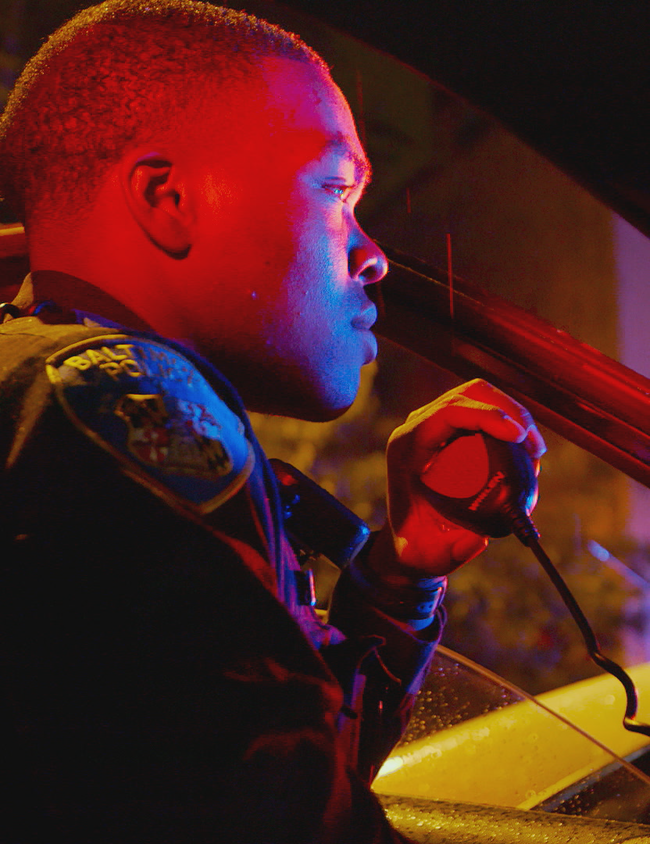(Part of its new 30 For 30 series, Without Bias premieres on ESPN tonight—Tuesday, November 3rd, 2009—at 8pm, followed by more airings on various ESPN channels over the next few months. Go here for details.)
Normally, when I don’t respond to a film, I have the luxury of politely turning my back on it and focusing my attention on something more positive. But when it comes to a film like Kirk Fraser’s Without Bias, in which my own blood, bones, and memory are so biologically intertwined with the subject matter, it’s impossible to do that. Last year, this happened with Sam Mendes’ godawful adaptation of my favorite book, Richard Yates’ Revolutionary Road (if you haven’t read my review, you can do that here, though be forewarned: it isn’t pretty). In the case of Len Bias, even Revolutionary Road doesn’t appear on the radar. Bias’ death was the single most devastating loss I have ever encountered, primarily because it was the first real loss I ever had to face. If you want to laugh at that claim, I can point to several more distinguished voices who will tell you the same.
On the morning of June 19, 1986, I was in my house in Mt. Airy, Maryland, getting ready for basketball camp. Later that evening, I had a baseball game. I was nine days away from turning twelve years old. Just two days before, my life had changed completely. Len Bias, the star forward of the Maryland Terrapins basketball team and my own personal hero (in addition to many others, I would shortly learn), had been drafted by my least favorite team in the NBA, the Boston Celtics. No matter. When David Stern announced Lenny’s name as the second pick and I saw him break out into that impossibly wide smile of his, the past was swept away. It was time to buy a Boston Celtics jersey. I had a new favorite team. I had a reason to live.
Two mornings after that glorious night, the phone rang. I walked into my parents’ bedroom and picked it up. It was my sister Karen, who was babysitting down the street. She was in a panic. “Turn on Channel 2, Michael! Len Bias is dead!” Before my brain had time to process what she said, my body was already swarming with adrenaline. And when I turned on the television and saw the newscaster confirming what my sister had told me, I started screaming. I refused to accept it, though the tears that streamed down my face were proof that I knew the score. Crying, I ran around upstairs, back-and-forth, back-and-forth; I ran downstairs, around-and-around, around-and-around; I didn’t know what to do. I don’t remember what happened next, because everything became an incomprehensible blur. I went to basketball camp that day, but I couldn’t stop crying. And though the tears eventually subsided, the despair did not. I have never tried to unfix anything so hard in my life, but I knew that I couldn’t unfix the unspeakably premature death of my hero. Len Bias was dead.
Which is to say that I had just a teensy bit of baggage with regards to Fraser’s Without Bias, a 60-minute telling of this horrifically tragic tale. Not only did Bias’ death cast a pall on the Celtics organization for years to come, it led to the unfair dismissal of Maryland’s feisty coach, Lefty Driesell, and the subsequent dive-bombing of their program (which wouldn’t be resurrected for years). If that weren’t enough, lawmakers decided to make an example of Bias’ death, passing shoddily concocted legislation that led to the mass incarceration of men who, whaddya know, shared Bias’ skin color. Talk about turning a negative into a negative.
Fraser covers most of this in Without Bias, but, man, he does it with the skill of a lackluster made-for-third-rate-television director who is simply going through the motions. His most unforgivably miscalculated gesture is a bludgeoning score that ruins the genuine emotions that might otherwise have surfaced without its constant, pummeling presence. But overall, the film feels too rushed. I’m pretty sure that this project was assembled in feature-length form at some stage along the way, and while I objectively believe that the Len Bias story warrants a more thorough treatment, I’m still concerned that Fraser isn’t the one to tell it. I watched Without Bias with another of my sisters, who was also devastated by the death of Bias and suffered through it, but, more importantly, I wanted to watch it with my girlfriend, who had no connection to the story but whose job is to watch movies for a living. Both considered it a major failure.
As I said initially, I don’t believe my purpose as a movie reviewer is to poop on a party that has the best of intentions, and I also realize that my personal connection to this story means that I probably shouldn’t be reviewing it in the first place. When I woke up this morning, I planned to simply remain silent. But after rereading Bill Simmons’ heartfelt reflection that he first published on the 15th anniversary of Bias’ death, I felt like I had to weigh in. I’m not telling you to avoid watching Without Bias tonight, for my own deeply personal bias has clearly gotten in the way, but I thought I should warn you.
— Michael Tully











